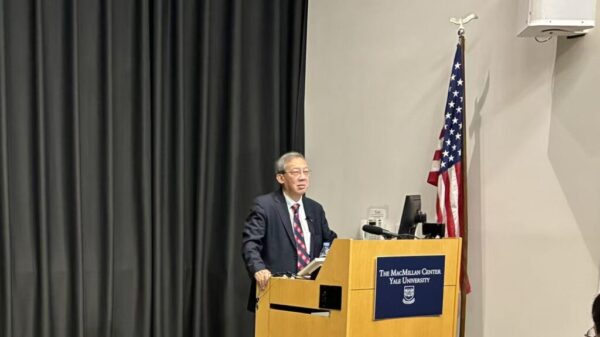URGENT UPDATE: Brazil is on the brink of an economic crisis as alarming demographic trends threaten its stability. Economists are sounding the alarm over the country’s plummeting birth rates and rapidly aging population, which could undermine Brazil’s long-term economic prospects.
New reports confirm that Brazil’s total fertility rate has fallen to an unprecedented 1.57 in 2023, significantly below the 2.1 threshold required for population stability. This decline has resulted in 2.6 million annual births in 2022, a stark decrease from 3.6 million in 2000, according to the Brazilian Institute of Geography and Statistics (IBGE).
The implications are severe and immediate. As Brazil’s population ages, the proportion of elderly individuals—those aged 60 and above—has more than doubled since 2000, now accounting for over 15 percent of the population. This figure is projected to double again by 2070.
Why This Matters NOW: With fewer workers to support economic output, Brazil faces rising dependency ratios and increasing pressure on pensions and public healthcare systems already strained for resources. The World Bank states that without urgent structural reforms, Brazil’s ability to sustain growth amid these demographic shifts is in jeopardy.
Braulio Borges, a senior economist at FGV Ibre, emphasizes the urgency of this situation: “Population growth has already been slowing dramatically, from 2.5 percent annually in the 1970s to 0.4 percent in recent years. Projections suggest growth could slow to just 0.3 percent by the end of this decade.”
The economic landscape is shifting at an alarming pace. Brazil, the world’s 10th largest economy, is not only growing old before it can achieve wealth but is also facing delayed motherhood and smaller family sizes influenced by urbanization, education, and rising living costs.
Children in Brazil, such as those playing in the Rocinha favela in Rio de Janeiro, embody the future of a nation grappling with these daunting trends. Their lives will be profoundly affected by a shrinking workforce and the mounting challenges of an aging society.
As The Economist reported in January 2024, plunging fertility rates across Latin America threaten not just public finances but also social stability, making it imperative for Brazil to take immediate action. The upcoming years will be critical as the country navigates these demographic challenges while striving to enhance productivity, promote innovation, and strengthen resilience against climate change.
What’s Next: Brazil’s policymakers must act swiftly to address these demographic changes. The focus will need to shift towards implementing structural reforms that can enhance the business environment and improve learning outcomes to ensure economic sustainability in the face of a rapidly aging population.
Stay tuned for further updates on this developing story as Brazil confronts one of the most significant challenges to its economic future.




































































